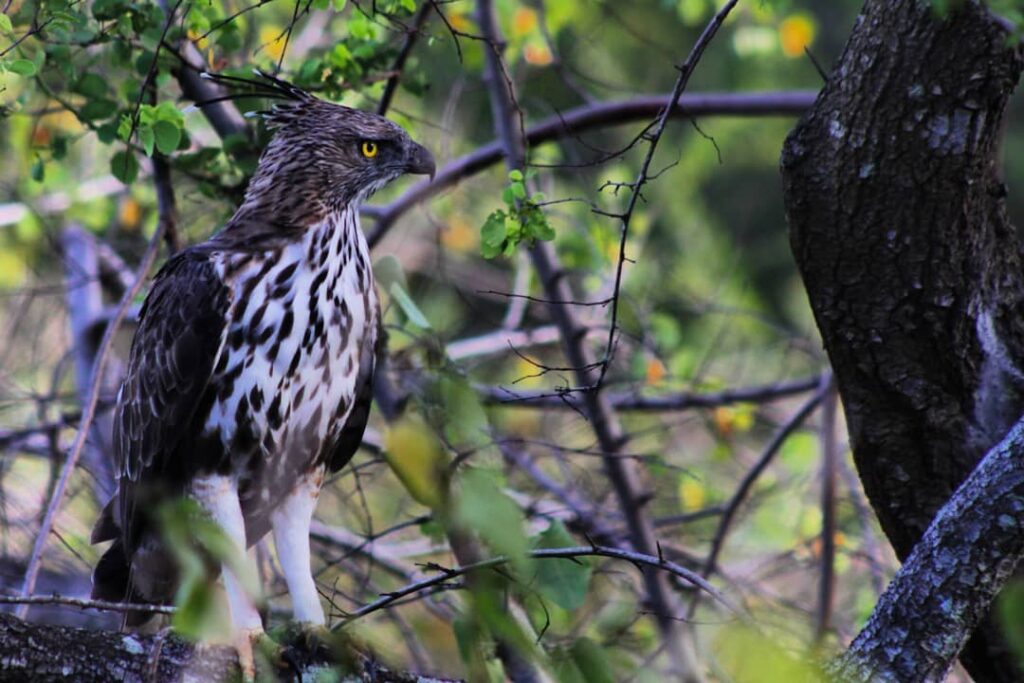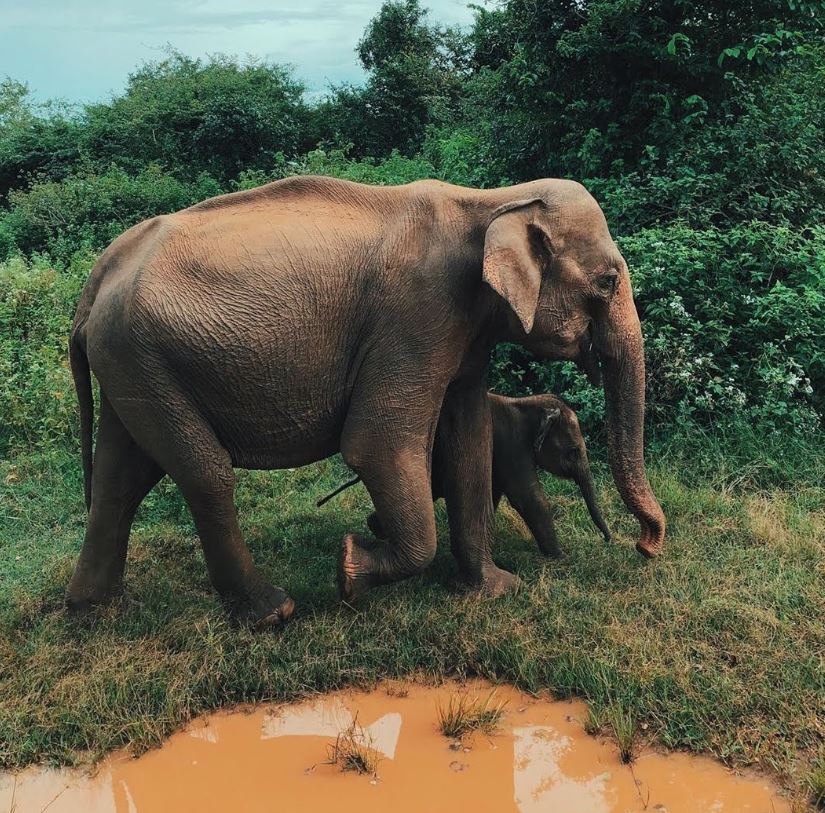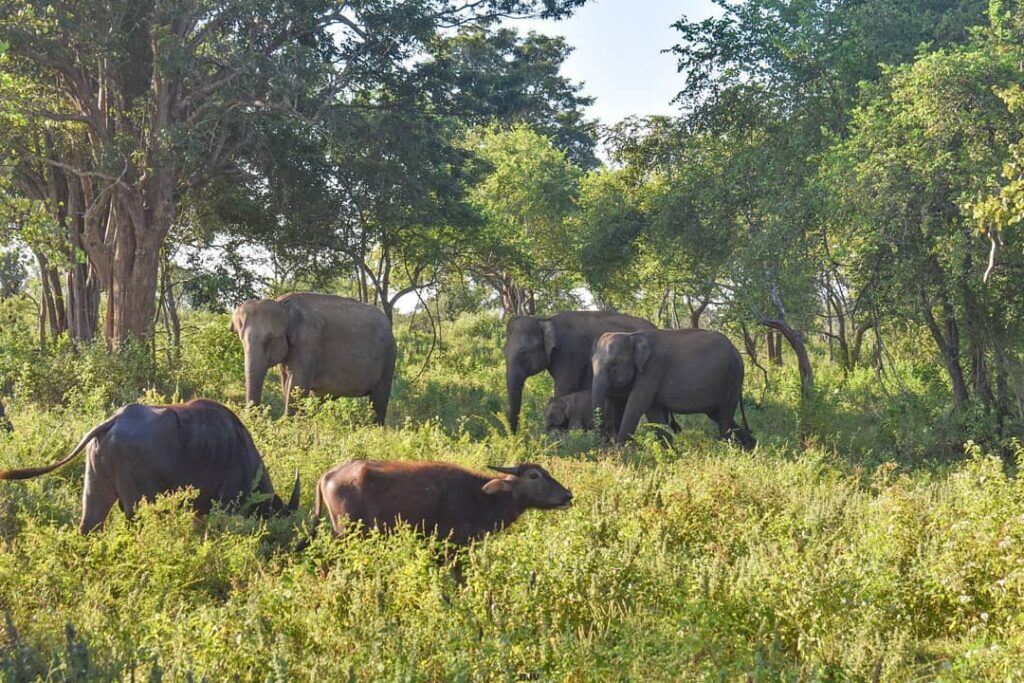


Udawalawe National Park was established in 1972 to protect the catchment area of the Udawalawe Reservoir, which had been built in 1967 for irrigation purposes. The construction of the reservoir led to the flooding of large areas, displacing local wildlife. In response to this environmental change and the growing threat to wildlife in the region, the Sri Lankan government designated the area as a national park to protect its diverse ecosystems and wildlife.
Creation of the Park
The creation of the park was driven by the need to conserve the habitat for wildlife, particularly elephants, which were increasingly being pushed out of their natural habitats due to agricultural expansion and human settlement. The Udawalawe Reservoir became an essential water source, and the surrounding area provided a sanctuary for many species that had been displaced from other parts of the country. The park covers 308 square kilometers and includes grasslands, forests, and wetlands, creating a perfect habitat for a wide variety of animals.
Conservation Efforts
From the outset, Udawalawe National Park has played a key role in conserving Sri Lanka’s wildlife. The park is best known for its large population of wild elephants, and conservation initiatives have been focused on protecting these elephants, as well as other species like leopards, sambar deer, and various bird species. The park’s ecosystem is carefully managed to maintain a balance between conservation efforts and sustainable use by local communities.
Tourism and Economic Impact
In the years following its establishment, Udawalawe National Park became a major tourist destination due to its rich biodiversity, particularly its herds of wild elephants. Tourism has had a significant economic impact, with visitors coming to experience the park’s wildlife, participate in safaris, and observe nature in its purest form. The park has helped raise awareness about the importance of wildlife conservation in Sri Lanka.
Current Status
Today, Udawalawe National Park remains one of Sri Lanka’s most visited national parks and an essential location for wildlife conservation. Its rich biodiversity and stunning landscapes continue to attract tourists, researchers, and conservationists alike. Efforts to preserve the park’s wildlife and environment are ongoing, with the aim of ensuring the long-term protection of this natural treasure.
Safari Packages
Private Afternoon Tour Itinerary
- 2.00 pm: Pick up from your hotel in the Udawalawe area hotels (within 5km) and transfer to Udawalawe National Park Location
- 2.30pm: Afternoon/Evening Udawalawe Safari Tour you can Witness the breathtaking elephants, along with other wildlife and birds like Peacock, Eagle, Pelicans, Parrot, Crane, Parakeet, Owl and many more. As well animals like Deer, Rabbits, Wild Boar, Grey Langers, Monkey, Water Buffaloes, Crocodiles etc.
- 5.30pm – Drop back to your hotel Location (within 5km)
An afternoon safari at Udawalawe National Park provides a unique chance to observe wildlife and experience the park’s beauty during the stunning hours of dusk.
NOTE: Time may be change depend on traffic and weather conditions.
Safari Tour Price (Ticket & Jeep)
Rate – Adults Fee – Per Person
- Entrance ticket fee for Udawalawe National Park Safari Tour & Jeep: Per Person Cost Price (min 2 Person) – US$ 65 / EUR 62 / GBP 52) per foreign adult and US$ 33 / EUR 31 / GBP 26 per foreign child of age 03 – 12 years are applicable.
What is Included
- Free pick up and drop will be provided free of charge only to main entrance (within 5km) Udawalawe area hotels only.
- Private Jeep for your group and Professional Safari Driver
- Udawalawe Safari Entrance Tickets
- All applicable taxes.
- Hotel Pick up and Drop Off near Udawalawe Park (within 5km)
Excluded
- Food & Drink
- Tips for Driver
